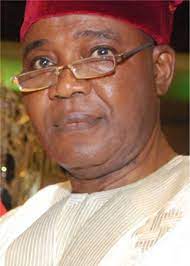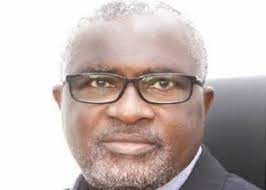As part of its 50th anniversary celebration, Punch Newspapers published a special publication, PUNCH 50, in which top former and present Board and management staff spoke on their various experiences in the company over the years.
In the excerpts below, we bring you key insights that have contributed to the company’s success, the executives’ careers and the plans for years ahead.
Mrs Angela Emuwa. Chairman Punch Nigeria Limited
‘I’ve worked with the board to balance our traditional methods with a willingness to innovate’
Since June 26, 2018, when you took over as the Chairman of the ‘ Most Widely Read Newspaper’ in the country, what has your experience been?
Since assuming the role of chair, I’ve encountered some challenges, but I thrive on them. Leading an inherently risk-averse family business, I’ve worked with the board to balance our traditional methods with a willingness to innovate and explore new avenues for success. Even though it took some members of the board some time to adjust to having a woman in the chair position, I remained steadfast in prioritising the company’s best interests throughout every challenge. As things have stabilised, I’m pleased with our current direction and eager to continue our journey of growth and adaptation.
It’s PUNCH Newspapers 50th Anniversary Celebration. What’s the inspiration, at a time as this when the media, the print especially is burdened by the harsh realities of today’s economy?
The 50th anniversary celebration of PUNCH offers us an opportunity to honour its resilient legacy amidst the harsh economic realities facing the print media industry today compelling case study for the perseverance of family businesses. Under your watch, how well would you rate the performance of the PUNCH titles in the newspaper market share? Under my watch, we continue to dominate the industry. We have the largest share in the market both in print and online. That’s not to say we are complacent, though. We continually keep tabs on innovative global trends in our industry and try to see how we can adapt or adapt to stay current. Our reporters and editors have continued to win awards and recognition. We have been winning it for years and also sustained our winning ways under my leadership. I would say we have done well, but I will always believe we can do better.
Where do you see the PUNCH titles in the next 10 years within the Nigerian media industry?
I see PUNCH continuing to be a dominant force within the industry. We are at the point where the next generation is about to be positioned to join the business and eventually take over, giving us fresh perspectives on publishing. Before joining, they must have the requisite qualifications and undergo industry-specific training to be their best. By continually leveraging technology, data analytics, and audience insights, the newspaper aims to enhance its relevance, reach, and revenue-generating capabilities, ensuring its continued success and relevance for the next 10 years and beyond.
Chief Ajibola Ogunshola, Emeritus Chairman.
‘Our turnaround magic from shutting down’
PUNCH was close to dying by the time you took over, what magic did you do for the turnaround of the paper?
Brainstorming. In those days, we would sit down for meetings starting at 9 am and finishing at 11 pm because there were so many issues to trash. I was coming to the PUNCH’s old office from far-away Agbara Estate, Ogun State and I would go back in the night. Hard work, analyses and perhaps my contribution. I was trying to ensure as much as possible, we put a measure to whatever we wanted to do. We tried as much as possible to get information. Essentially, we did a lot of brainstorming and thinking.

We were not always right, as it happened in the issue of the Internet paywall thing, which was necessary, but the market was not ready for it. Also, the payment system had not yet become so widespread and the trouble to get recharge cards to use and the cost of printing the cards hampered the arrangement. Sometimes, we reverse ourselves. Something one has learnt about management is that it is not always necessary to be the first to introduce something. I can assure you that THE PUNCH under my leadership would probably never have been the first to introduce colour pages because it was a gamble. It is not the type of gamble I would take as the Chairman. I say gamble because it brought the cost of the production of the paper to a much higher level and to recoup that you have to charge higher and raise the advert rates. So, it is a good thing in terms of making the paper more appealing to people and entering a new colour age and, therefore, we must congratulate the Chairman of THISDAY for pioneering it. We decided that we would have a go at it because they went into it and of course, there is no doubt that within a short time, we surpassed everybody in quality. There are things that you should wait for other people to do; that is what I’m saying. That is my approach. When something is risky, sometimes you wait for someone to do it first because of the implications. One other thing which we did that was very good was refusing to take unsold copies and it was a battle; a big battle.
What is PUNCH’s unique selling point?
Credibility is the main point. Secondly, trying to be fair, but fairness is in the eyes and mind of the person who is judging. So whatever you do, however you try, somebody will always say you are not trying; but I know management has been trying its best to be fair. Management tries to insist that if a story is carried, we try to get all sides of the story and I have always said whenever I have cause to have meetings with the management that it does not mean that PUNCH has to be neutral. What is important is to be fair. A paper can stand for something; the only thing is that whatever you stand for should be broadly in the public interest.
There was a time, many years ago when advertisers were asking what our unique selling point was: are we appealing to the middle class, the upper class, or to the drivers and mechanics? This is because some of our competitors told them that PUNCH was not read by the elite but by mechanics. In any event, that died because, over time, it became obvious that the elite read PUNCH. It (criticism) also helps sometimes because one must not admit that one has total knowledge. Some of the criticisms were useful because we beefed up the business pages and how political events were reported. There were enhancements here and there. So, some of the criticisms helped to ensure that as much as possible, we got a broad range of people who read the paper
ADEYEYE JOSEPH Managing Director
‘Personal work ethic that has worked for me’
What was the transition like from the newsroom to the boardroom?
I would say tough but seamless. My first newsroom was THISDAY, and it was there that I started my journey as a lowly reporter. I remember my days as a reporter with great fondness, though it was rough, and life was hard for me and my family. Nevertheless, THISDAY was a great place to work because it was constantly brimming with creative energy, and some of the longest-lasting and truest relationships that I greatly cherish were formed in the crucible of that testing experience.

I like to analogise my experience using computer terms: what people get to see when they look at a computer is the simplified and pretty front end. What they do not see is the messy maze of wires and complex algorithms that keep the computer’s interface pretty and inviting. I have always striven to ensure that I have a personal work ethic that is more demanding and more exerting than that of any organisation that I work for. If I travel to work on a story, I’ll ensure that I return with three stories. If I am tasked with editing a page, I’ll try to edit a dozen. As for my elevation to the PUNCH board, it was seamless. The requirements for success in PUNCH are well known, and they flow directly from the top to the board. The PUNCH board is cosmopolitan, engaged, and broad-minded. It is a marketplace of ideas that places a great premium on integrity, character, competence, logic, and innovation. So, any executive or anyone elevated to the board with such attributes, in sufficient quantities, is unlikely to have an issue with the board. So, I had none.
As we mark the Golden Anniversary of PUNCH Newspapers, what should the staff under your care look forward to?
In the last five years or so, PUNCH’s board and management have taken deliberate, intentional steps towards rebranding our image and creating a corporate atmosphere and reputation that attract, retain, and nurture talent. Ceteris paribus, this agenda will be furthered in the years ahead. Some of the initiatives simply reinforced the strong reward recognition culture that PUNCH is widely acknowledged for in the industry. Others sought to reframe the human resources frameworks and structures to reflect the best of modern HR practices. In the last 20 years or more, PUNCH has consistently paid staff salaries on the 26th of every month, insured its staff, paid the highest salaries in the media industry, encouraged and supported further studies etc. We also have a reputation for equipping PUNCHERs with the resources that’ll aid them in getting the best results.
PUNCH was the first media organisation to equip its journalists with laptops and digital cameras decades ago, and at some point, our staff of the year were rewarded with brand-new cars. We have also sustained the tradition of prioritising training and retraining as vehicles for the continuous reinvention of staff and the company. The annual PUNCH Immersion Programme and PUNCH Refresher Programme are mainstays of our training efforts while the PUNCH Editorial Graduate Employment Scheme (PEGES) has been utilised to attract the best journalistic talent to PUNCH. So, we have a reputation and heritage to protect and project, and our Golden Decade will see us building on these initiatives and the ones introduced recently, such as the staff education support grants. We also have quite a few interesting, futuristic digital projects that are certain to provide staff with striking opportunities for growth.
Ademola Oni, GM Digital and Publication
‘What has kept PUNCH going’
What would you say that has kept PUNCH going for this 50 years?
Well, it’s the management; the set standard. In PUNCH, something that is unchangeable is the power to always improve on the set standard while having a planned focus for the future. At a time, most journalists would not want to work with PUNCH. Why? It believes in staying to standard and the ingredient to strengthen that standard – is discipline. If you say you are the market leader, you must build structures that will help you to stay at the top. It’s easy to get to the top but not easy to stay there because others are eyeing where you are; they want to get there. Over the years, PUNCH has had very solid management, especially when Mr. Ademola Osinubi (as the MD) and Chairman Emeritus Baba Ajibola Ogunshola, were in charge.

They formed that partnership that even when you put them in charge of Nigeria, Nigeria would have been a success story. After Baba Ogunshola, we also had the entrance of Mr Wale Aboderin, a very humble, highly organised and brilliant man, whom we lost some years ago. The partnership of the current Chairman, Mrs Angela Emuwa, and current MD, Mr Adeyeye Joseph, has been lifting PUNCH higher from what they met. One can’t be afraid to work in PUNCH when you have a committed and passionate woman of steel as chairman and a versatile and brilliant MD. Again let me shock you. During the Covid-2020 lockdown, PUNCH was about the only newspaper at the time paying salaries regularly in Nigeria.
Adedayo Oketola, Editor, Daily
‘Advice for young journalists, prospective Punchers’
What advice do you have for up-and-coming journalists, especially prospective Punchers?
Yes, as a manager and an accomplished journalist, you can’t survive or succeed as a journalist if you have no passion for the job. You must have passion because good journalism in a place like The PUNCH will test your grit. It will push you. It will test your resilience. So, if you don’t have passion for the job, you have no business being here. As a manager of men and resources, I can say that if you don’t have passion for the job, it becomes a problem for your line editors. You must also be ready to learn. A good journalist, even a good editor, is a life learner. You will learn from anybody, from anywhere, in any circumstance. So, it would help if you were open to constant learning. And you must always upskill your knowledge about the job.

Journalism is fast-changing, so you need to develop the capacity to do journalism of the current time. You need IT knowledge and to be technology savvy. You’ll need to understand how to navigate social media and use it as a resource for your job. You cannot help but accept artificial intelligence as one of the realities right now. You must have the passion to continue to learn. Then you must be resilient. You must have patience. Journalism will not give you much money, but it can fulfil you. You must be patient. It must be something you are passionate about. And that’s it. A journalist must be a learner. You must develop the grit to continue to learn. And you must have the nose for news. You have no business being here if you don’t have all or some of these qualities.
Ademola Osinubi, former Managing Director
‘Promotion should be a reward for outstanding performance’
It is still early in the new year, but the economic situation is tough. People, including PUNCH’s employees, have prayed that God should grant them favours (promotion, salary increase etc.) in their workplaces in the new year. Will PUNCH workers’ prayers be heard this New Year?
It is not as if we have taken a decision not to promote staff. If we want to be fair to the company, we will agree that we’ve been promoting our staff every year but strictly based on merit. We have promoted a lot of people over the years, and I can mention names. One thing that has emerged over the years is the attitude of some people, who are influenced by the civil service mentality, that promotion should be automatic and based solely on the number of years of service. I, particularly, have made my position known to my colleagues; this is a private initiative, and we can not continue to determine promotion based on the number of years of service. It is not the sole criterion as there are many other things to be considered. Promotion is primarily performance-based. A few examples. The former Editor of The PUNCH, Mr Martin Ayankola, for instance, joined PUNCH as a chief correspondent (business) and rose to become an editor in less than five years. The Managing Director, Mr Adeyeye Joseph, also has a similar story. If not even faster. He rose to become the editor of Saturday PUNCH in less than five years, and then became the editor of The PUNCH, rose to become a controller, and now he is the managing director. It is not because they had people that favoured them. It is basically about performance. So, when people begin to say they have spent so and so several years and have not been promoted, I wonder. You should even be happy that you have not been kicked out if you have spent so long without earning a promotion. It means your performance is not at its best. PUNCH has a culture of its own, and it is its DNA. This is what we do and it has always worked for us. Any company that does not see promotion as a reward for outstanding performance is going to be in trouble.

You can’t be moving people based on who has spent what number of years. Of course, your salaries will be increased, but when you get to the end of your grade, then you can’t move again. So you will have to either improve your performance or at some point in time, the system will ask you to leave. So, it is not as if we have not been promoting people. Last year, over 40 people were promoted, and the year before, about double that number of staff were also promoted. Last year, we also increased everyone’s salaries despite the not-too-healthy economic circumstances. I am sure you are aware that we have a board that is very interested in the welfare of our staff. Some of these matters are discussed at the board level. When we were in very good times, we appreciated our employees very well and more than we do in normal times. At one point, we used to give the winner of the Employee of the Year award a brand-new car, but the issue of sustainability later came up. How do we sustain buying a car for an employee every year with the current economic situation? We have to be certain that we can sustain our current level of emoluments.






